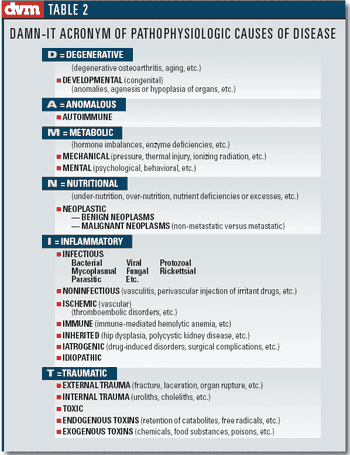
Most would agree that a correct diagnosis is an essential prerequisite to providing safe and effective treatment for various illnesses.

Most would agree that a correct diagnosis is an essential prerequisite to providing safe and effective treatment for various illnesses.
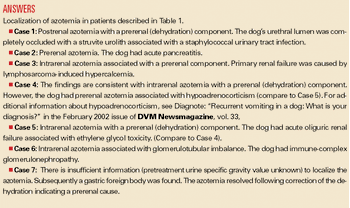
Azotemia is defined as an abnormal concentration of urea, creatinine, and other nonprotein nitrogenous substances in blood, plasma or serum.

What is the antidote for a tendency not to trust others? The antidote is unselfishness. Our trust in others is a form of generosity.

Our clients might doubt our sincerity or competence if we avoid respectful eye contact.

Men forever will be accountable for the level of stewardship they provide animals.
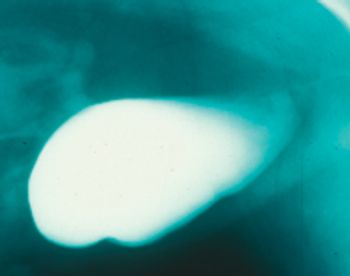
Spontaneous rupture occurs from wrong or overzealous attempts to restore patency.

However, factors such as diet, medications and sample handling might also influence laboratory test values.

Diagnostic analysis of urinalysis
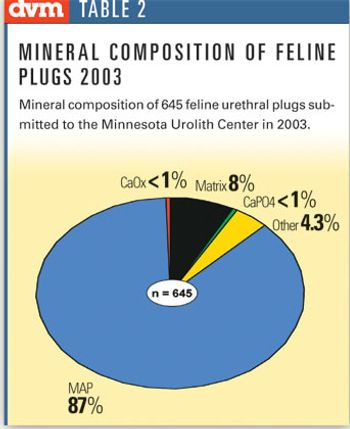
Recently, concern has been expressed that widespread use of diets to minimize struvite crystalluria has been associated with an increase in the frequency of calcium oxalate uroliths.
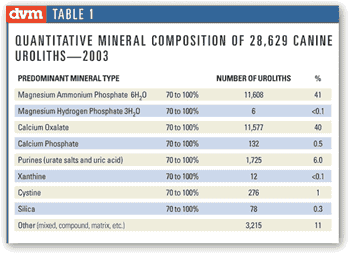
Magnesium ammonium phosphate (MAP, also called struvite) comprised 41 percent of 28,629 canine uroliths submitted to the Minnesota Urolith Center during the year 2003.

As discussed in last month's Diagnote, the underlying causes of different types of uroliths vary. It follows that medical and/or surgical procedures designed to safely and effectively treat different types of uroliths also vary. The objective of the second part of this series is to provide an overview of risks and benefits associated with surgical and medical therapy of urolithiasis. Therapeutic caveats associated with treatment of specific types of uroliths will be the subject of next month's Diagnote.

Protocols have been developed to promote dissolution of canine and feline struvite uroliths, the dissolution of canine ammonium urate and cystine uroliths, and the prevention of all major types of canine and feline uroliths.

What do the words Fido, fidelity and confidence have in common? Can you find the root word in these terms? If you have decided the root word is "fid," you are correct. It is derived from the Latin term, "fidelitas." You Latin buffs may recall its meaning - "faithful."
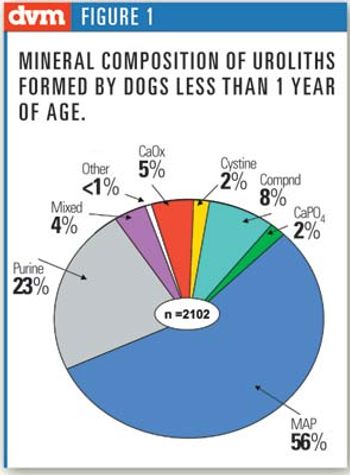
Recently a colleague asked me for advice about stones in the urinary bladder of an 8-week-old female Shih Tzu. The owner, who had recently acquired the dog, was concerned about whether or not the uroliths were indicative of an inherited disorder.

The veterinarian's oath states in part, "Being admitted to the profession of veterinary medicine, I solemnly swear to use my scientific knowledge and skills for the... relief of animal suffering... Does this solemn promise encompass our being "Good Samaritans"? What principles are involved in being a Good Samaritan? What are Good Samaritan laws, and how do they affect each of us? To what extent should we contribute our resources in the role of being a Good Samaritan?

The time has arrived when students graduating from colleges and schools of veterinary medicine take the Veterinarian's Oath. Do you recall taking this oath? It states in part, "Being admitted to the profession of veterinary medicine, I solemnly swear(to) accept as a lifelong obligation the continual improvement of my professional knowledge and competence."
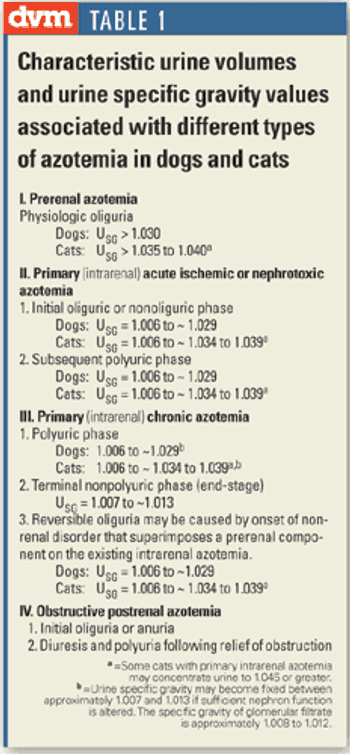
Recently a colleague asked me if I could direct her to a reference source for normal and abnormal drinking and urine volumes of cats and dogs. Although this information is available, it is scattered in different textbooks and journal articles. The primary objective of this Diagnote is to provide this information in one concise location.
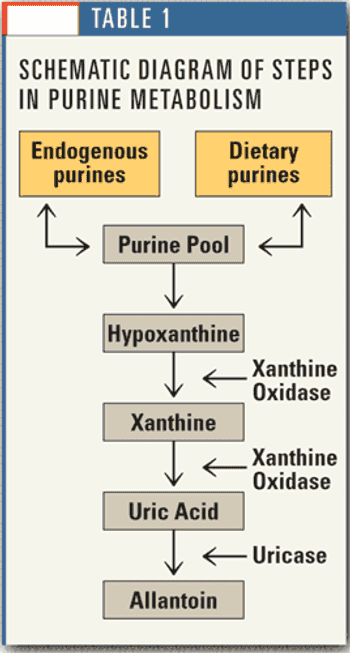
Recently a colleague in private practice asked me for advice about how to treat xanthine bladder stones formed by an 11-month-old, spayed female domestic shorthaired cat.

The technical language of medicine that we routinely use in describing various aspects of a diagnosis, prognosis and treatment often baffles clients who are unfamiliar with medical terminology. However, many medical terms that we commonly use in the English language are derived from words that were commonly spoken in Greek or Latin languages. Test your knowledge about the origin of the following medical terms.
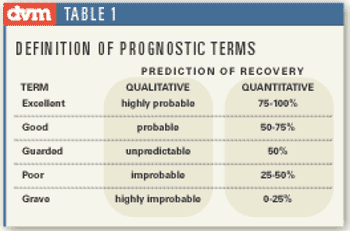
From a client's point of view, the antemortem differentiation of potentially reversible from irreversible illness is often the most important unknown related to clinical assessment of a patient. Client's typically ask, "Can you help him/her doc?" Our clients are concerned about the probability of their animals' recovery from diseases and disorders with or without therapy, the nature and cost of therapy, and whether recovery will be partial or complete. This phase of patient evaluation is commonly referred to as the"prognosis".
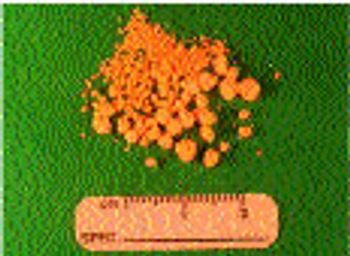
Recently a colleague in private practice asked me for advice about how to treat cystine bladder stones formed by a 5.5 year-old, spayed female Siamese cat. Although textbooks that he consulted contained information about cystine urolithiasis in dogs, he was unable to find recommendations for this disorder in cats. How would you manage this case?
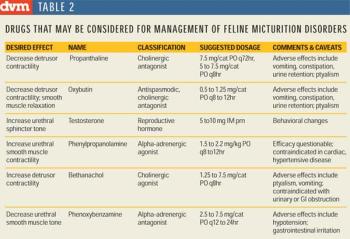
Normal urinary continence. Micturition may be defined as function of the lower urinary tract that encompasses both a storage phase and a voiding phase. During the storage phase of micturition, the urinary bladder, acting as a low-pressure reservoir, is relaxed and fills with urine.
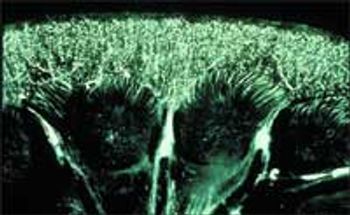
Recently, a colleague in private practice asked my opinion about the likely benefit of obtaining an ultrasound-guided percutaneous needle biopsy of the kidney of an azotemic, isosthenuric, 8-year old domestic shorthair cat. She indicated that evaluation of a serum chemistry profile, hemogram and urinalysis revealed findings consistent with idiopathic chronic renal failure.

How do your clients respond when you and your staff have gone the extra mile to provide care for their beloved animal companions?
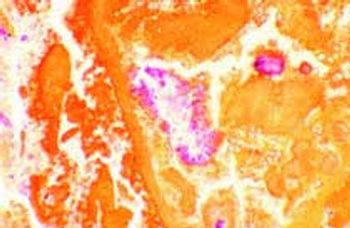
An 8-year-old spayed female domestic shorthair cat was referred to the University of Minnesota Veterinary Teaching Hospital for evaluation of bilateral nephroliths associated with persistent gross hematuria.

In the April issue of DVM Newsmagazine (p. 48) we considered application of seven diagnostic axioms with the goal of enhancing patient care.

Recently, I received a letter from an inquisitive Dalmatian owner which stated in part: "I have a 9-year-old female Dalmatian that has been diagnosed with a urinary tract infection because of red blood cells found in urine aspirated from her urinary bladder during an annual physical exam. She does not have a problem urinating and her urine appears very clear; it is not bloody. My vet has tried two types of antibiotics (cephalexin first and trimethoprim-sulfa three weeks later). Even though her urine is not bloody, red blood cells are still present in the urinalysis. My vet also prescribed a special diet to prevent urate stones from forming even though no crystals were found in her urine. Is there a probability of urinary stones even though there are no crystals in her urine? Is the urinary tract infection persisting because of stones?"

Most would agree that a correct diagnosis is a key prerequisite to providing safe and effective treatment for various illnesses. However, our diagnoses are often a matter of opinion rather than matter of fact.

A 4-year-old female Rottweiler named Twice is admitted on an emergency basis to your hospital with an owner's complaint of substantial depression, anorexia and vomiting of three days' duration.

Transurethral catheterization of the urinary bladder is commonly used as a diagnostic and therapeutic aid.